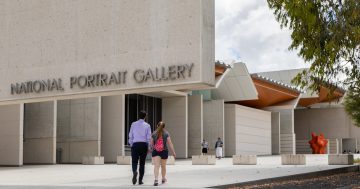 1. This week 10 years ago, a new $2.5 million state-of-the-art cargo and quarantine hub was opened for the Australian Antarctic Division on Hobart’s waterfront, aiming to banish bugs, rats and other “alien” hitchhikers from boarding ships travelling south.
1. This week 10 years ago, a new $2.5 million state-of-the-art cargo and quarantine hub was opened for the Australian Antarctic Division on Hobart’s waterfront, aiming to banish bugs, rats and other “alien” hitchhikers from boarding ships travelling south.
It featured vermin traps, impenetrable walls and automatic shutter doors to reduce the risk of introduced species reaching the fragile Antarctic and sub-Antarctic environments.
Minister for the Environment, Tony Burke said it was a significant improvement in biosecurity to help realise the 1991 vision that the Antarctic should be the one continent on Earth that was kept as a pristine wilderness dedicated to science and peace.
2. The Federal Magistrates Court was renamed the Federal Circuit Court of Australia with magistrates to be known as “Judges”.
Attorney-General, Mark Dreyfus said the Court’s new name demonstrated the important service it provided to rural and regional communities through its program of regular court circuits.
He said the Court’s important role in the federal judicial system would continue under the new name and the new title of Judge also better reflected the status of the Court.
Mr Dreyfus also announced that processes for handling complaints about Federal judicial officers had been introduced to ensure complaints were handled fairly and transparently while maintaining the constitutional independence of the judiciary.
3. In Queensland, Townsville Police unveiled a new blog to boost interaction with the public by allowing police to make information available to the community in a timely manner.
Minister for Police, Jack Dempsey launched myPolice Townsville, saying the blog featured crime prevention tips and allowed police officers to interact with a part of the community who may not have the ability or time to attend Neighbourhood Watch meetings or drop into the police station to voice concerns.
“Through the blog, police officers are able to share information about personal safety, keeping property secure and also show comfit images or stills from CCTV to a wider audience,” Mr Dempsey said.
4. The North Queensland Community Advisory Group for Crocodile Management was established to give residents a direct say on crocodile management in their area.
Minister for Environment and Heritage Protection, Andrew Powell said the role of the group would be to discuss with the Department current and new crocodile issues, to suggest improvements and future management options, and provide the Government with local advice.
“The Government is committed to improving crocodile management in Queensland with an increased focus on public safety,” Mr Powell said.
5. The South Australian Government announced the extension of Flinders Chase National Park by 1,680 hectares, linking up the coastal corridor of conservation reserves at the southern end of Kangaroo Island.
The National Park features spectacular cliffs overlooking the wild Southern Ocean, natural formations such as Remarkable Rocks and Admirals Arch, two heritage lighthouses and a colony of New Zealand fur seals.
Minister for Environment, Ian Hunter said the area had spectacular natural beauty and high conservation value.
“This newly acquired land at Hanson Bay is particularly important as it links Flinders Chase National Park, Kelly Hill Conservation Park and Cape Bouguer Wilderness Area as a coastal corridor, which will have great benefits for the local fauna and flora,” Mr Hunter said.
6. And a decade ago, the Federal Government announced it would clamp down on employees gaining extra training and qualifications through self-education courses, with Treasurer, Wayne Swan putting an annual $2,000 limit on tax deductibility for the courses from 1 July 2014.
Mr Swan said the absence of a taxation cap meant workers studying to improve their skills and promotion prospects could “enjoy significant private benefits at taxpayers’ expense”.
He said the expenses being targeted included tuition fees, textbooks, stationery and travel expenses as well as conferences, seminars and self-organised study tours.
“Without a cap on the amount that can be claimed under this deduction, it’s possible to make large claims for expenses such as first-class airfares, five-star accommodation and expensive courses,” Mr Swan said.











